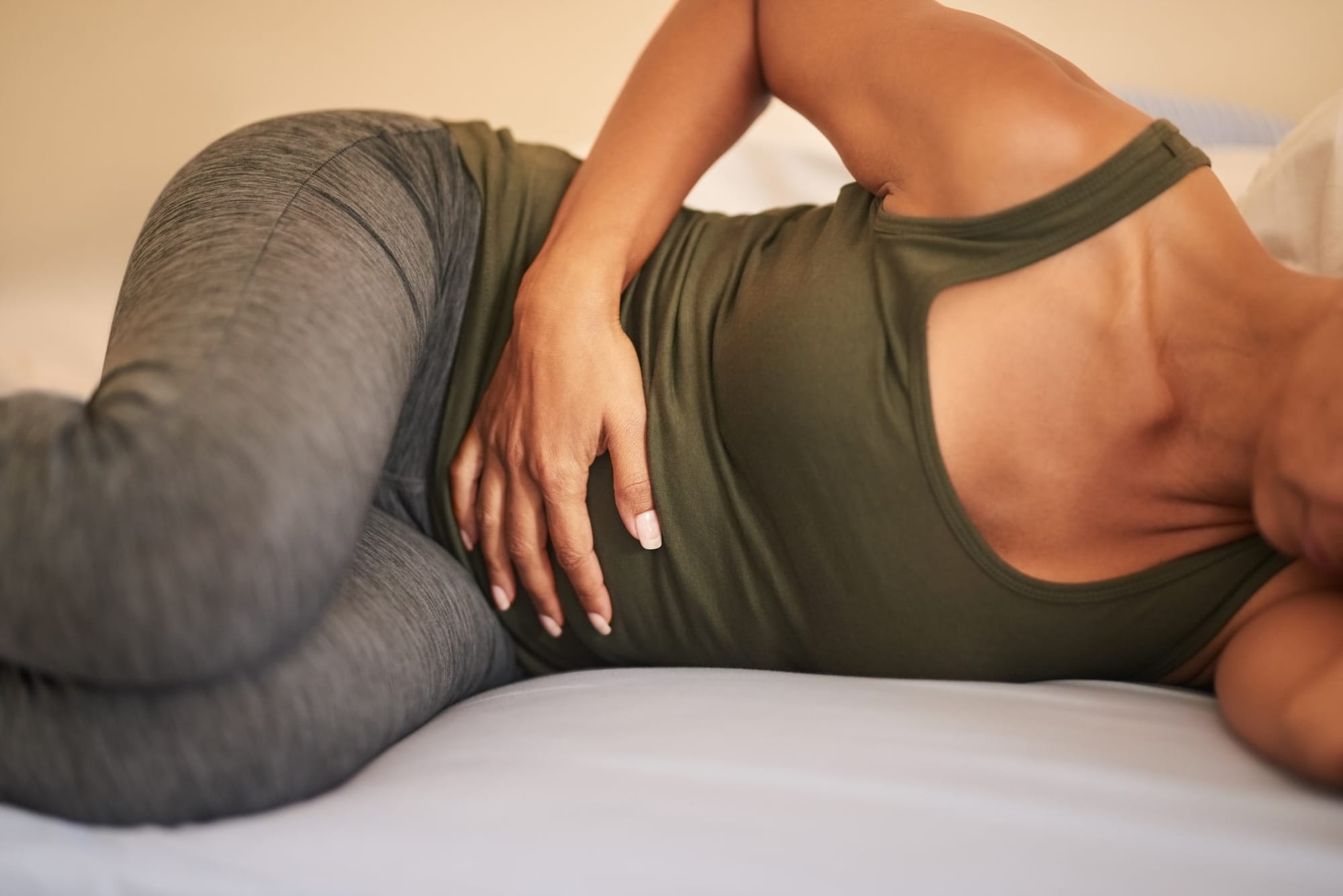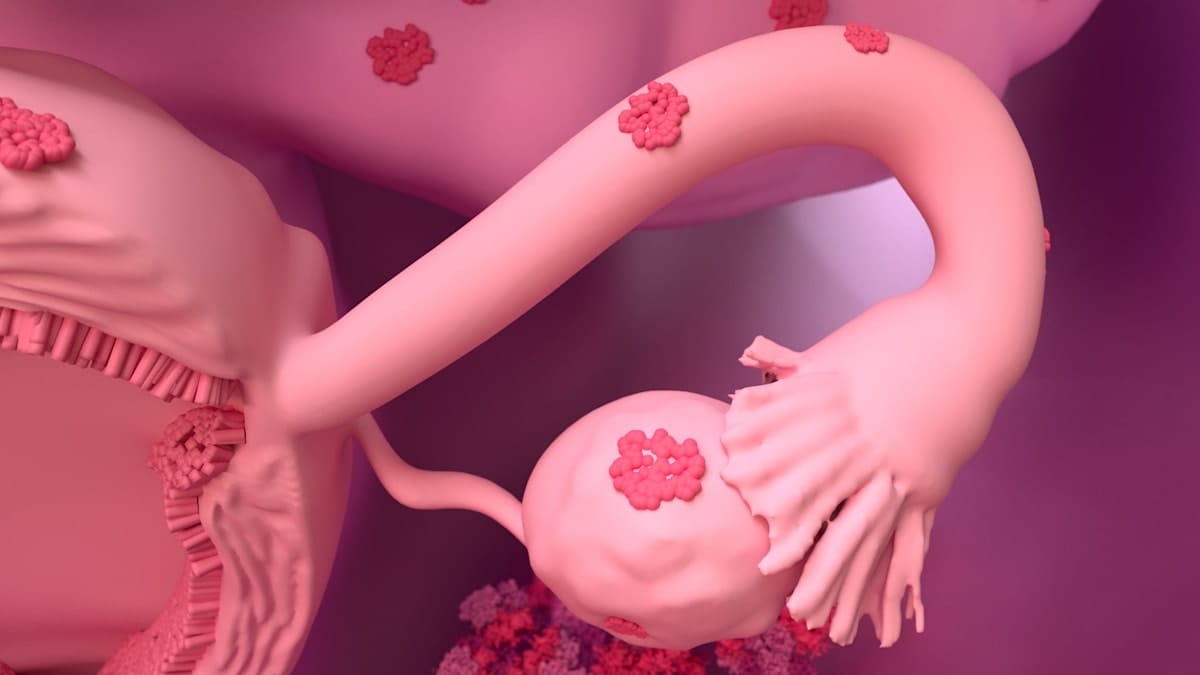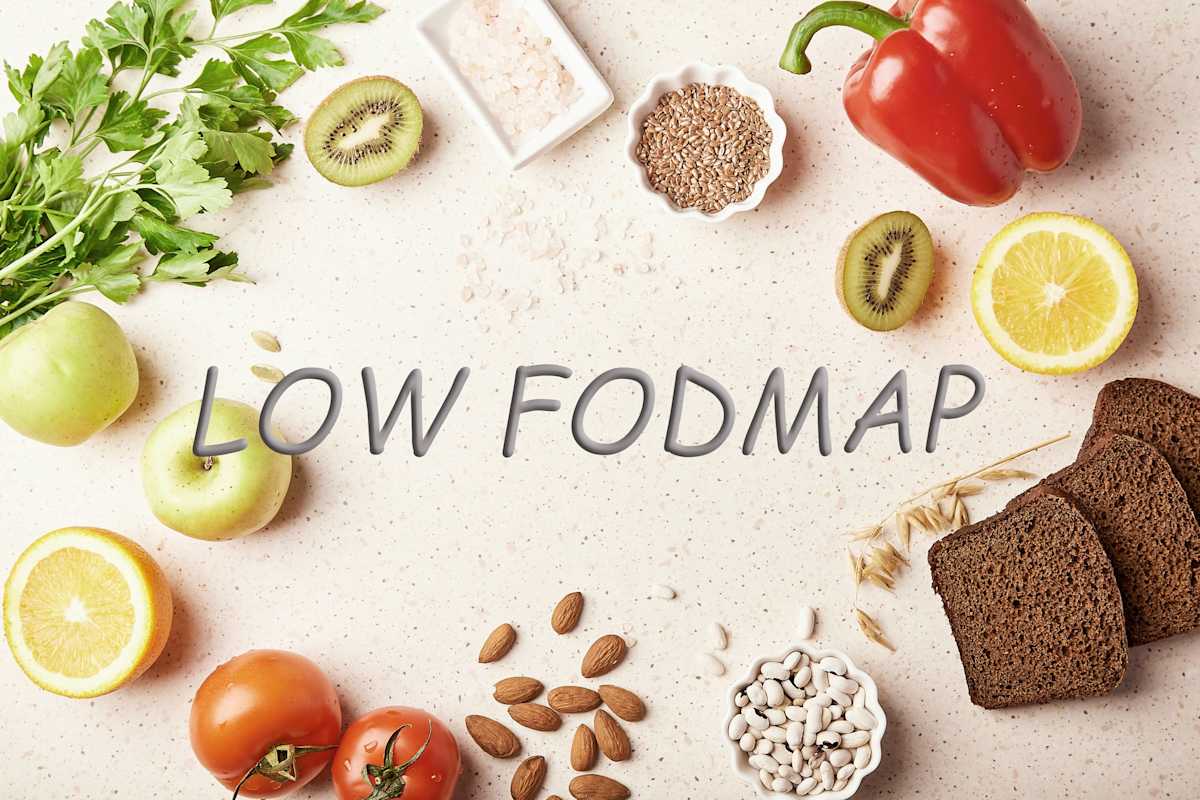
For the majority of women living with endometriosis, chronic and painful gastrointestinal symptoms are a part of day-to-day life, yet often left untreated due to under-recognition by healthcare providers and an absence of evidence-based treatment options.
But new research could change all of this, and provide women with an evidence-based dietary approach to relieve gut symptoms associated with endometriosis.
Endometriosis is a chronic, inflammatory gynaecological disorder that affects a staggering one in seven Australian women. It causes a range of chronic, unpredictable and often severe symptoms, including dysmenorrhoea (painful periods), pelvic pain (pain felt below the belly button and between the hips) and dyspareunia (painful sexual intercourse).
These symptoms disrupt daily life, affecting women’s finances, relationships and mental health, and limiting their ability to work, learn, socialise, exercise and have children.
Read more: Endometriosis, improving women’s care and the ‘hysteria myth’
Gastrointestinal symptoms such as abdominal pain, bloating, distension, diarrhoea, constipation and painful defecation are extremely common in endometriosis, affecting more than three-quarters of sufferers.
Typically, these symptoms intensify during menstruation; occur regardless of bowel involvement of the disease; and overlap with irritable bowel syndrome (IBS), which is thought to affect between 10.6% and 52% of women with endometriosis.
Further, when gastrointestinal symptoms occur in endometriosis, this amplifies the pain experience, increases the risk of misdiagnosis (with conditions such as IBS), drives healthcare utilisation, and diminishes quality of life.

Why current treatments fall short
But despite this high prevalence and heavy burden of gut symptoms in endometriosis, treatment options are limited. Few endometriosis treatments specifically target gastrointestinal symptoms, and some (for example, progesterone and opioid medications) can make symptoms worse.
Compounding this, many women report dissatisfaction with endometriosis treatments, as surgery is associated with long waiting times, high out-of-pocket costs, ongoing pain and repeat procedures, and medical therapies (such as hormone treatment and pain relief medications) are limited by modest efficacy and troublesome side-effects.
Not surprisingly, many women with endometriosis turn to self-management approaches, such as diet and nutritional supplements in an effort to manage symptoms and take charge of their illness.
The widespread use of nutritional supplements among women with endometriosis is highlighted in Australian and international data. For instance, a recent international survey revealed that more than 58% of women with endometriosis had used nutritional supplements, despite only 43% reporting an improvement in pain.
In Australia, three-quarters of women use either fish oil, multivitamins, vitamin B and/or vitamin D to manage their endometriosis.
Read more: Endometriosis – finally, sufferers are getting the attention they deserve
Dietary approaches are also commonly used by women with endometriosis. For instance, cross-sectional data from Australia, Holland, the UK and one international survey show that between 27% and 84% of women with endometriosis use dietary modifications to manage their symptoms, with fairly high degrees of self-reported efficacy.
Despite this uptake, there’s limited evidence to support the practice of either nutritional supplementation or dietary modification in endometriosis. While a recent review of commonly-used nutrition supplements for endometriosis-related pain revealed that garlic, trace element and a combined vitamin C and E intervention showed promise for improving pain, authors cautioned about the poor quality of studies in this area.
Similarly for diet, while a range of interventions are frequently used by patients to manage symptoms of endometriosis, such as the “anti-inflammatory” diet and diets that restrict components such as red meat/animal products, gluten, dairy, lactose, FODMAPs, caffeine, soy and alcohol, few of these dietary approaches have any evidence to support their efficacy.

A promising breakthrough: The EndoFOD study
Recognising this gap in the scientific evidence, the high rates of gastrointestinal symptoms in endometriosis, and robust evidence supporting the benefit of a low FODMAP diet for gastrointestinal symptoms related to IBS, Monash University researchers recently completed a study examining the effectiveness of a low FODMAP diet in 35 women with endometriosis and poorly-controlled gastrointestinal symptoms (EndoFOD).
In this first randomised controlled crossover feeding study in patients with endometriosis, participants were randomised to a 28-day, supplied low FODMAP diet or a supplied control diet, both of which were modelled on Australian dietary guidelines and nutritionally matched, except for FODMAPs.
Participants consumed the supplied diet for 28 days, before washing out for at least 28 days and crossing over to the alternate diet. To control for the known effect of menstrual cycles on gastrointestinal symptoms, participants commenced each diet on day one of a menstrual cycle.
By the end of the intervention, 60% of participants responded to the low FODMAP diet, and experienced clinically significant improvements in gastrointestinal symptom severity.
Improvements were also seen for abdominal pain, bloating, stool form (fewer loose stools) and quality of life.
When gastrointestinal symptoms were compared over the four weeks on each diet, improvements were apparent by week two of the low FODMAP diet, after which time improvements continued (albeit more gradually) until the end of the intervention.
These findings are encouraging and provide the first evidence-based diet therapy for endometriosis. While certainly not representing an alternative to conventional pharmacological or surgical treatment options for endometriosis, the FODMAP diet does provide patients and clinicians with an effective, evidence-based, adjunct treatment to manage troublesome gut symptoms that affect the majority of sufferers.
What’s next for diet and endometriosis care
Further research is needed to confirm the EndoFOD findings in a real-world, multi-centre trial that involves dietitians teaching the diet, and patients with endometriosis modifying their diet based on this advice.
While the Monash study robustly confirmed the efficacy of the FODMAP diet for endometriosis by supplying most food to participants for the four-week intervention, thus ensuring a high degree of control and good adherence, this does not reflect real-world conditions when patients face barriers to intervention adherence, such as motivation, understanding the prescribed intervention, food availability and convenience.
To find out more about the study and the FODMAP diet, go to monashfodmap.com





